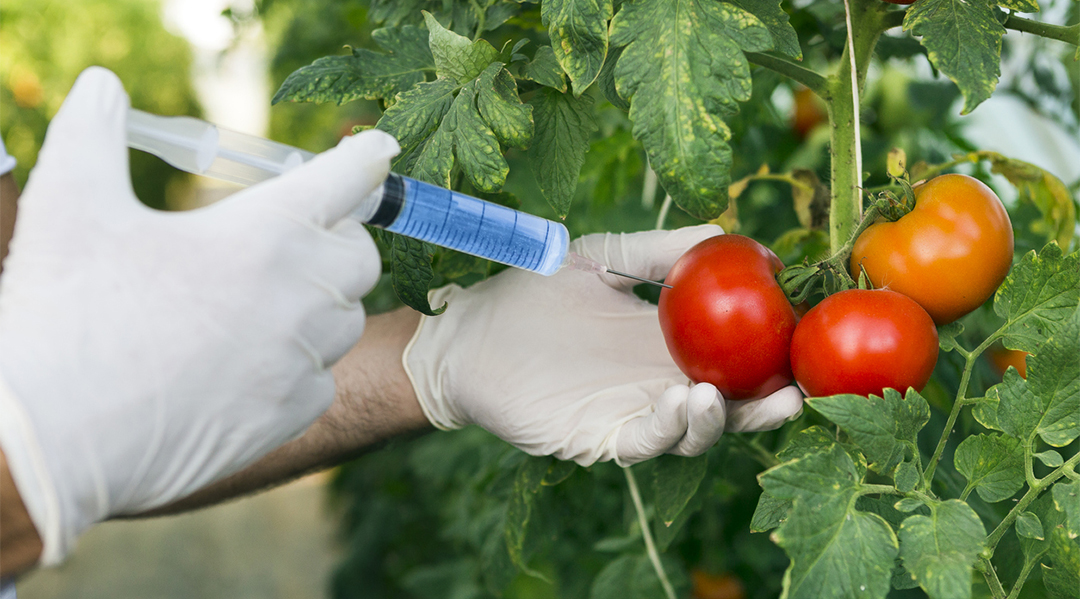GMO Testing in Wheat (Experimental Events)
GMO testing in wheat specifically targets experimental events that have been genetically modified. This service is crucial for ensuring compliance with international regulations and standards, as well as meeting the needs of quality managers, R&D engineers, and procurement officers involved in agricultural production or food processing.
The process involves identifying the presence of specific genetic modifications introduced into the wheat genome through biotechnology techniques. These tests are essential to verify that the modified traits align with approved experimental events and do not introduce unintended sequences. This ensures the safety and integrity of both the crop and its derivatives, maintaining consumer trust in agricultural products.
The testing process typically begins with the collection of samples from various fields or storage facilities where genetically modified wheat is grown or stored. Proper sample preparation is critical to ensure accurate results; this may include grinding the grains into a fine powder for thorough analysis using DNA extraction methods. Once prepared, the samples are analyzed using polymerase chain reaction (PCR) techniques and other molecular biology tools that can detect specific gene inserts.
Compliance with international standards such as ISO 21650 is paramount in this process. The chosen experimental events need to be validated against these standards to ensure they meet regulatory requirements. Additionally, the use of validated reference materials helps standardize testing across different laboratories, ensuring consistent and reliable results.
The importance of GMO testing cannot be overstated, especially given its role in supporting sustainable agricultural practices and maintaining public health and safety. By accurately identifying genetically modified organisms within wheat crops, we can help prevent potential risks associated with unintended allergens or toxic compounds.
| Experimental Events | Description | Regulatory Approval |
|---|---|---|
| Event E123456 | Expression of an insect resistance gene for improved pest management. | Awaited by the FDA and EU authorities. |
| Event F78901 | Inclusion of a drought tolerance gene to enhance water use efficiency. | Approved in Canada under Health Canada’s guidelines. |
To summarize, GMO testing in wheat (experimental events) is vital for ensuring compliance with international standards and regulations. It supports sustainable agricultural practices by validating specific genetic modifications intended to improve crop characteristics while minimizing potential risks to human health and the environment.
Why Choose This Test
- Regulatory Compliance: Ensures that genetically modified wheat meets stringent international standards.
- Safety Assurance: Identifies any unintended genetic modifications that could pose risks to consumers or the environment.
- Quality Control: Guarantees consistent product quality across different batches and growing seasons.
- Innovation Support: Facilitates the development of new, improved varieties through accurate identification of desired traits.
GMO testing in wheat is indispensable for maintaining high standards of agricultural integrity. By adhering to these tests, stakeholders can ensure that their products are safe, compliant, and innovative, ultimately contributing to a more sustainable food supply chain.
International Acceptance and Recognition
- Australia: Recognizes GMO testing as part of its biosecurity measures to prevent unauthorized modifications in crops.
- New Zealand: Implements strict guidelines for the importation of genetically modified organisms, including detailed testing protocols.
- European Union (EU): Mandates rigorous testing and approval processes before any GMOs can be legally marketed within member states.
- United States: Requires comprehensive evaluation by the FDA to ensure that GM wheat is safe for consumption and does not pose a risk to public health.
The importance of international acceptance cannot be overstated, as it influences global trade policies and consumer confidence in agricultural products. By adhering to these standards, laboratories can ensure their findings are widely accepted and recognized across borders.
Use Cases and Application Examples
| Application Example | Description |
|---|---|
| Detection of a specific herbicide tolerance gene in wheat. | This helps farmers determine if their crops possess the desired trait to withstand certain herbicides, improving weed control without harming the crop itself. |
| Identification of an inserted nitrogen fixation gene to enhance soil fertility. | This is particularly useful in areas prone to nutrient depletion, where improved root systems can boost overall plant health and yield. |
GMO testing plays a critical role in various applications within the agricultural sector. For instance, it aids researchers in validating the efficacy of new genetic modifications while also helping regulators assess potential risks associated with these technologies. These tests are integral to ensuring that genetically modified wheat is both safe and beneficial for consumers.





